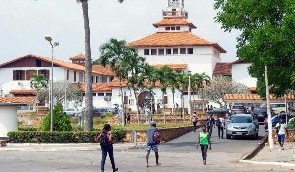The Ministry of Energy is developing a Gas policy and other regulations that it hopes Parliament will pass before the close of year to provide transparency in the emerging gas sector, a Parliamentary select-committee on Mines and Energy’s report has revealed.
According to the Committee’s report, one of the key performance targets by the Ministry for the year is to develop and approve a Gas Masterplan.
The previous administration approved a Gas Masterplan at cabinet but plans to follow it up with a Gas Policy and Gas Act did not materialise and it is this gap that the Energy Ministry is looking forward to achieve by firming up a Gas Policy by end of this year.
“The Ministry intends to develop during the year the following regulatory measures; Gas Policy and a Gas Act to provide transparent regulatory framework for the gas industry, address infrastructure requirements, funding, institutional mandates for gas sector agencies and a revised gas pricing policy to response to Ghana’s developmental priorities,” the report said.
The Gas Policy and Gas Act is also expected to usher Ghana into an era of indigenous gas production.
The Ministry said plans are in place for the increase in oil output from Jubilee field from the current 99,569 bopd to 111, 833 bopd and gas also from 80.8 to 102.3 million standard cubic feet of gas per day.
Under the power sub-sector, the Energy Ministry said there are plans to increase the installed generation capacity of the country by adding a total of 1,227MW to the existing installed capacity through 370MW AKSA project, 107MW GPGC project, 350MW CenPower project and 400MW Early Power project.
The first gas from the TEN fields is expected to arrive in the second quarter of 2017, as well as first oil from the Offshore Cape Three Points (OCTP) also expected in the third quarter of the year.
Gas is increasingly becoming a major focus of government, given its significance in the generation of power. Having exhausted its hydroelectric potential the country is increasingly moving toward thermal power generation, for which a lot of gas is required.
According to the Energy Minister, Boakye Agyarko also promised an aggressive rural electrification programme and also pledged to use judiciously all the resources that has been allocated to the Ministry.
He made the pronouncement on the floor of Parliament, where an amount of Gh?889 million was approved as budget for the Ministry in the 2017 fiscal year.
Business News of Sunday, 2 April 2017
Source: thebftonline.com













